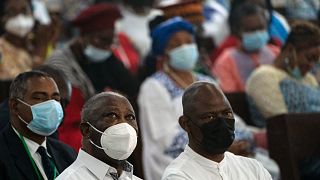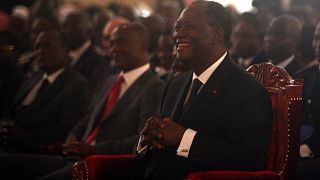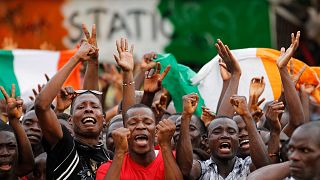Ivory Coast
The purchase price of cocoa to farmers in Côte d'Ivoire, the world's leading producer, has been set at 825 CFA francs (1.25 euro) per kilo, at the opening of the 2021-2022 cocoa season, a drop of 17.5%, the Ivorian regulatory body for the sector announced Friday.
During the previous campaign (2020-2021) which coincided with the presidential election of 2020 in Côte d'Ivoire, the price paid was 1,000 CFA francs (1.52 euros) per kilo, "an electoral price" had denounced the opposition.
This Ivorian campaign starts after the establishment a few months ago by Côte d'Ivoire and Ghana, two West African countries that account for about 60% of global cocoa, a body designed to ensure a remunerative price to farmers and "ensure sustainability of the cocoa economy.
The two countries have introduced the "Decent Income Differential" (DID), a premium of $400 per ton (over and above the market price) to better remunerate farmers, millions of whom live in poverty in West Africa.
In Côte d'Ivoire, the DRD, which came into effect during the previous season, has enabled "nearly 500 billion CFA francs (762 million euros) to be paid back to producers," said Yves Koné, the director general of the sector's regulatory body, Conseil Café Cacao (CCC).
"If the place of cocoa for our economy is no longer to be demonstrated, we can not ignore the small share that goes to the valiant producers: it is estimated at barely 5% of the global value added of cocoa," said Koné.
Farmers in tropical countries are the poor cousins of the sector: they receive only 6% of the $100 billion annual global cocoa and chocolate market, which is locked up by the big industrialists.
In Côte d'Ivoire, more than half of the farmers live below the poverty line, according to a World Bank study. The situation is similar in Ghana, where some 800,000 families live off the brown gold.
Cocoa is strategic in Côte d'Ivoire: it accounts for 10% to 15% of GDP, nearly 40% of export earnings and provides a living for five to six million people, i.e. one fifth of the population, according to the World Bank.
The cocoa sector must be transformed to ensure its future and better play "its role as an engine of economic development" in the country, the World Bank said.
AFP













02:08
Gunman attack in north-central Nigeria: death toll climbs to 150
11:14
Rwanda Walks Away: what’s behind the Central Africa rift? [Business Africa]
01:30
Ivory Coast opposition call for election reform ahead of vote
00:31
Mauritanian economist elected African Development Bank president
01:02
Tidjane Thiam Confirmed as PDCI President by Ivorian Court
Go to video
World Bee Day: bees under threat, but solutions exist, report finds